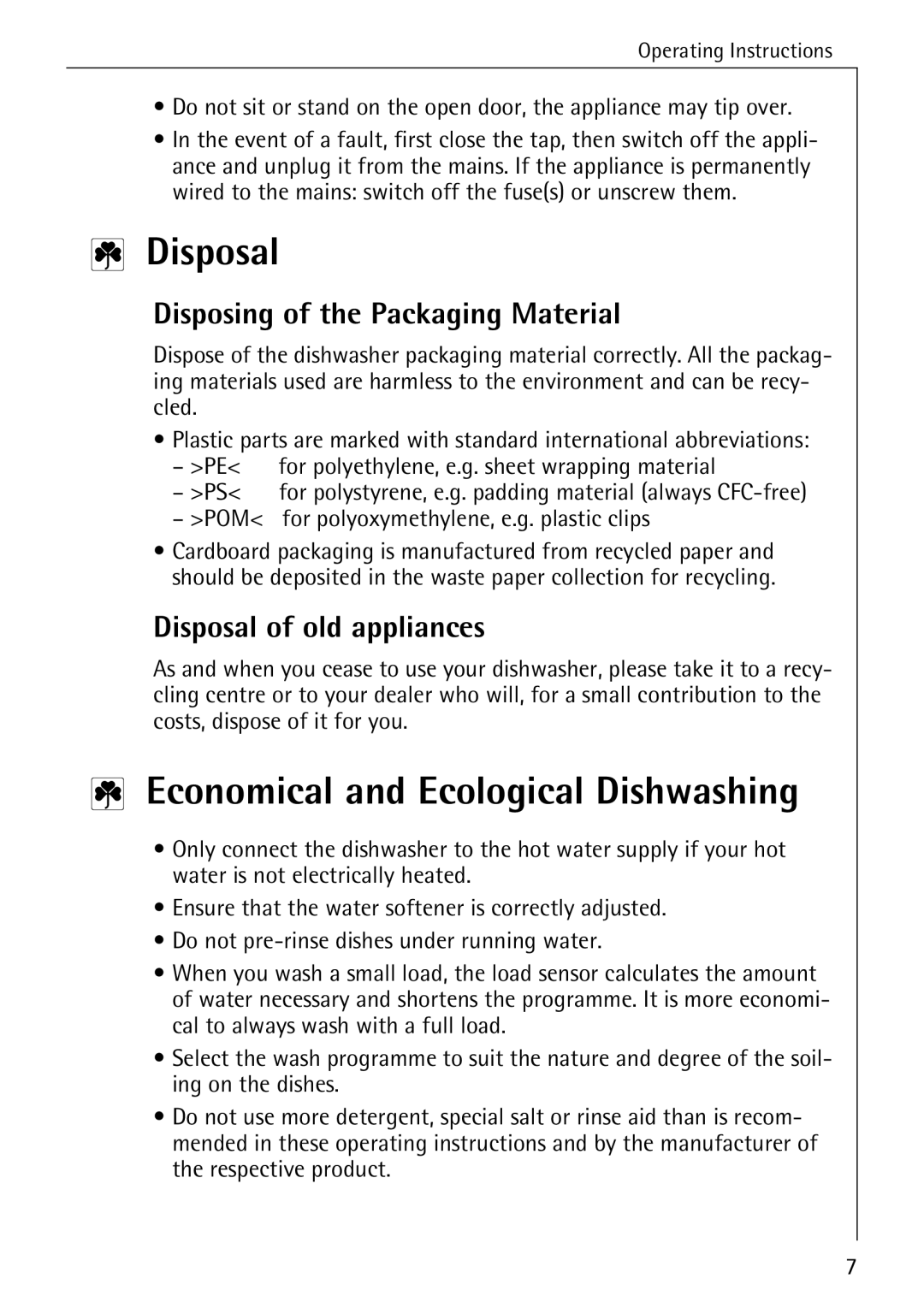
Operating Instructions
•Do not sit or stand on the open door, the appliance may tip over.
•In the event of a fault, first close the tap, then switch off the appli- ance and unplug it from the mains. If the appliance is permanently wired to the mains: switch off the fuse(s) or unscrew them.
2Disposal
Disposing of the Packaging Material
Dispose of the dishwasher packaging material correctly. All the packag- ing materials used are harmless to the environment and can be recy- cled.
• Plastic parts are marked with standard international abbreviations:
– >PE< | for polyethylene, e.g. sheet wrapping material |
– >PS< | for polystyrene, e.g. padding material (always |
– >POM< | for polyoxymethylene, e.g. plastic clips |
•Cardboard packaging is manufactured from recycled paper and should be deposited in the waste paper collection for recycling.
Disposal of old appliances
As and when you cease to use your dishwasher, please take it to a recy- cling centre or to your dealer who will, for a small contribution to the costs, dispose of it for you.
2Economical and Ecological Dishwashing
•Only connect the dishwasher to the hot water supply if your hot water is not electrically heated.
•Ensure that the water softener is correctly adjusted.
•Do not
•When you wash a small load, the load sensor calculates the amount of water necessary and shortens the programme. It is more economi- cal to always wash with a full load.
•Select the wash programme to suit the nature and degree of the soil- ing on the dishes.
•Do not use more detergent, special salt or rinse aid than is recom- mended in these operating instructions and by the manufacturer of the respective product.
7
